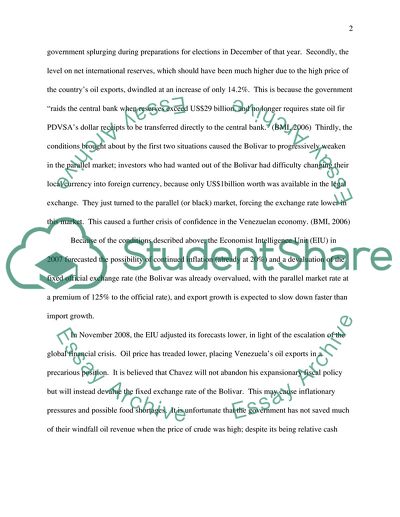Cite this document
(“International Finance: Venezuela Essay Example | Topics and Well Written Essays - 2000 words”, n.d.)
International Finance: Venezuela Essay Example | Topics and Well Written Essays - 2000 words. Retrieved from https://studentshare.org/macro-microeconomics/1555979-this-is-an-international-finance-class-the-topic-is-the-business-profile-of-venezuela
International Finance: Venezuela Essay Example | Topics and Well Written Essays - 2000 words. Retrieved from https://studentshare.org/macro-microeconomics/1555979-this-is-an-international-finance-class-the-topic-is-the-business-profile-of-venezuela
(International Finance: Venezuela Essay Example | Topics and Well Written Essays - 2000 Words)
International Finance: Venezuela Essay Example | Topics and Well Written Essays - 2000 Words. https://studentshare.org/macro-microeconomics/1555979-this-is-an-international-finance-class-the-topic-is-the-business-profile-of-venezuela.
International Finance: Venezuela Essay Example | Topics and Well Written Essays - 2000 Words. https://studentshare.org/macro-microeconomics/1555979-this-is-an-international-finance-class-the-topic-is-the-business-profile-of-venezuela.
“International Finance: Venezuela Essay Example | Topics and Well Written Essays - 2000 Words”, n.d. https://studentshare.org/macro-microeconomics/1555979-this-is-an-international-finance-class-the-topic-is-the-business-profile-of-venezuela.


